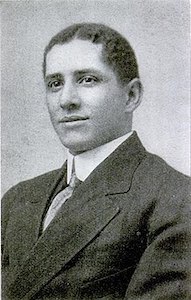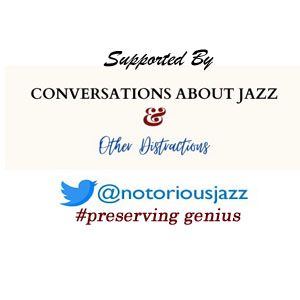
Daily Dose Of Jazz…
Harry Herbert Pace came into this world on January 6, 1884 in Covington, Georgia. No information is available about his parents but his grandfather was a slave related to his master who ultimately freed him. The young lad however completed elementary school at the age of twelve.
Enrolled at Atlanta University, Pace found work as a printer’s devil or an apprentice mixing tubs of ink and fetching type to pay his way through school. However, after learning that pay equity was higher for whites employees than black employees he left and began working odd jobs on campus instead. While at school he met W. E. B. Du Bois, who was one of his professors, and he went on to graduate valedictorian of his class in 1903, at 19.
A move to Memphis, Tennesse saw Harry going into the printing business with Du Bois. Then two years later they put together the short-lived magazine The Moon Illustrated Weekly. By 1912 he was collaborating and writing songs with W. C. Handy, who took a liking to him. They founded the Pace and Handy Music Company, which brought him to New York City. Around 1920, the company began working with composers William Grant Still and Fletcher Henderson.
A visionary who saw that the growing popularity of the phonograph would shift the music business as it reached a wider audience wanted to expand beyond selling sheet music for parlour playing. Handy had no interest in changing the business, so Pace resigned.
While living in 1921 Harlem, New York he established Black Swan Records after singer Elizabeth Taylor Greenfield, who was called the Black Swan. Their offices were in Times Square and he set up a recording studio in the basement of his brownstone. He brought in Henderson as recording manager and Still as arranger. The label’s first hit was a recording of Down Home Blues and Oh, Daddy, sung by Ethel Waters. Even with outstanding artists the label failed, went into bankruptcy and was sold to Paramount Records in 1923.
In 1925, Pace founded the Northeastern Life Insurance Company in Newark, New Jersey, which became the largest African-American-owned business in the North during the 1930s. Moving to Chicago, Illinois he attended the Chicago-Kent College of Law, receiving his degree in 1933. Around this time, he began passing for White and opened a law firm in downtown Chicago in 1942. His progeny would not discover his African ancestry until well after his death.
Music publisher, record label owner and life insurance executive Harry Pace, who is featured on the documentary series Profiles of African-American Success and in the miniseries The Vanishing of Harry Pace on Radiolab. transitioned on July 19, 1943, in Chicago.

More Posts: history,instrumental,jazz,music,music publisher,record label owner

